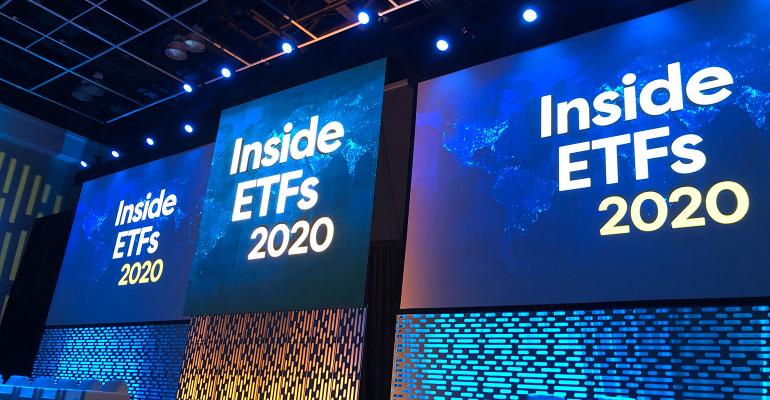Several executives at companies that issue and distribute exchange traded funds aren’t thrilled about fees for the funds heading to zero.
While they expressed that view at the Inside ETFs conference in Hollywood, Fla., other more objective market participants welcomed the trend.
“I’d be cautious of a free giveaway, said Sue Thompson, head of SPDR Americas distribution for State Street Global Advisors. "There is no free lunch. If something has value, it shouldn’t be free.”
State Street, of course, depends on revenue from ETFs, but Thompson said the firm offers value beyond simply providing the funds.
“A lot of ETFs are similar," she said. "We offer other things, such as portfolio consulting services.”
Luke Oliver, head of index investing, Americas at DWS Distributors, agreed. “It’s about quality,” he said. “We want to be paid for our services. If we add value, we deserve it.”
How much value these firms add is open to question. Plain vanilla stock ETFs have performed quite well during the past 10 years. And those are the cheapest funds.
“Zero fees makes adoption of ETFs by financial advisors easier,” said Robert Hughes, global head of Nasdaq Investment Solutions. “There’s a group of advisors that will adapt to zero-fee ETFs.”
But it's difficult for smaller ETF providers to keep up with the biggest players who can afford to give ETFs away, Oliver said.
“If you have scale, you can do it,” he said. “But that stifles competitors and start-ups. Building scale is OK for Facebook, but I don’t think that’s a good model for ma and pa investors.”
Oliver said he has nothing against shrinking fees, “but when the issuer is gambling on becoming large scale to make it work, that’s not helpful,” he said.
Ed Rosenberg, head of ETFs at American Century Investments, said while "the expense ratio and fees are a headline grabber,” it’s also about understanding and buying the product that is right for investors, not just the fee.
Dan Draper, global head of ETFs for Invesco, suggested some investors may be willing to pay for strong-performing ETFs. “Every industry has both low cost providers or innovators,” he said. “We compete in a different space. … There is still demand for differentiated content.”
But Sanjay Arya, head of Morningstar Indexes, said the fee reduction is natural as asset managers grow bigger.
“Asset management is a matter of scale," he said. "Fees go down as assets rise.”
Achieving returns in line with the overall market has become “more commoditized” since the financial crisis, he pointed out.
“After the financial crisis, who’s the asset manager is less important,” Arya said. “Investors benefit from access to a low-cost tool.”
Fee compression is a constant in the investment business, he explained. But that doesn’t detract from the value of financial advisory firms.
“The value proposition of everything we do continues to be enhanced. Fidelity gives zero-fee index funds and can then enhance other services,” Arya said.
Where there are inefficiencies in investing, fee decreases will continue, he said.





